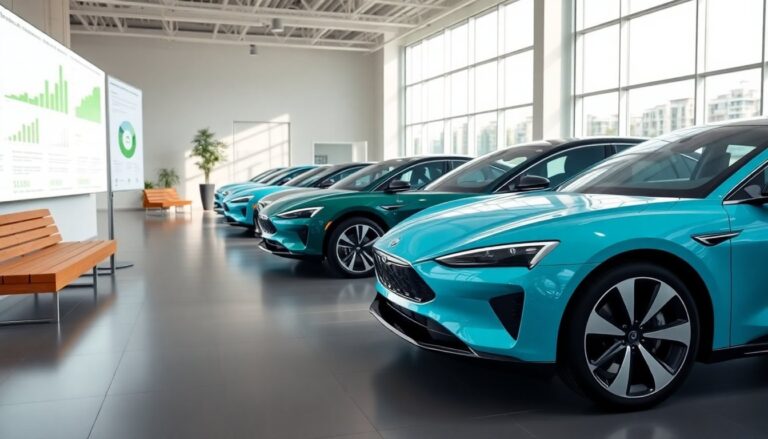Argomenti trattati
The automotive industry is experiencing a profound transformation, driven by rapid technological advancements. As consumers increasingly prioritize environmental sustainability, manufacturers are adopting innovative solutions that enhance vehicle performance while reducing carbon footprints. This article explores the latest trends and innovations reshaping the automotive landscape.
Electric vehicles and sustainable practices
A prominent trend within the automotive sector is the shift towards electric vehicles (EVs). In response to stricter emissions regulations enacted by governments worldwide, manufacturers are making significant investments in EV technology. These vehicles not only demonstrate greater efficiency but also present a cleaner alternative to traditional gasoline-powered cars.
Advancements in battery technology
Central to the electric vehicle revolution is battery technology. Innovations in lithium-ion batteries, including enhanced energy density and accelerated charging capabilities, are making electric vehicles more practical for daily use. Leading companies, such as Tesla, are at the forefront of developing new battery technologies that promise extended ranges and reduced charging times, effectively addressing one of the primary concerns for prospective electric vehicle buyers.
Rise of autonomous driving technology
Another significant development is the emergence of autonomous driving technology. Self-driving cars are evolving from a futuristic concept to a tangible reality, driven by advancements in sensors, artificial intelligence (AI), and machine learning. These technologies allow vehicles to navigate intricate environments, interpret traffic signals, and circumvent obstacles, showcasing the potential of automation in transportation.
The role of AI in driving
The integration of artificial intelligence into automotive systems is transforming vehicle safety and efficiency. AI-powered systems analyze extensive data in real-time, enabling vehicles to make informed decisions while on the road. This technology not only decreases the risk of accidents but also optimizes routes, leading to enhanced fuel efficiency.
Connected vehicles and smart technology
The automotive industry is not just focusing on electric vehicles (EVs) and autonomous driving; it is also embracing connected vehicles. These smart cars utilize internet connectivity to facilitate seamless communication between vehicles and infrastructure. Such connectivity supports features like real-time traffic updates, remote diagnostics, and over-the-air software updates, enhancing the overall driving experience.
Connected vehicles also play a significant role in advancing smart city initiatives. By interacting with traffic lights and other infrastructure, these vehicles can help create smoother traffic flows and reduce congestion, ultimately enhancing the overall driving experience.
The impact of innovations on consumer choices
The convergence of these technologies is dramatically influencing consumer preferences. Today’s car buyers are increasingly informed and tech-savvy, prioritizing vehicles that offer advanced features, sustainability, and user-friendliness. Consequently, traditional manufacturers are compelled to adapt their strategies to align with these evolving demands.
The emergence of ride-sharing platforms such as Uber and Lyft has transformed the concept of vehicle ownership. Today, many consumers prioritize access to a vehicle over ownership. This evolution is driving automakers to investigate innovative business models, including subscription services and shared mobility options.
Challenges ahead
While advancements in automotive technology are encouraging, significant challenges persist. The high cost of electric vehicles (EVs), the necessity for a comprehensive charging infrastructure, and regulatory barriers for autonomous vehicles hinder widespread adoption. Additionally, addressing cybersecurity concerns related to connected vehicles is crucial for safeguarding user safety and data privacy.
The automotive industry is poised for significant transformation, driven by a combination of electric vehicles, autonomous technology, and connected systems. As manufacturers innovate and respond to consumer demands, the sector is expected to evolve into a more sustainable, efficient, and intelligent realm. This evolution reflects a broader trend toward integrating advanced technologies that enhance both performance and user experience.

